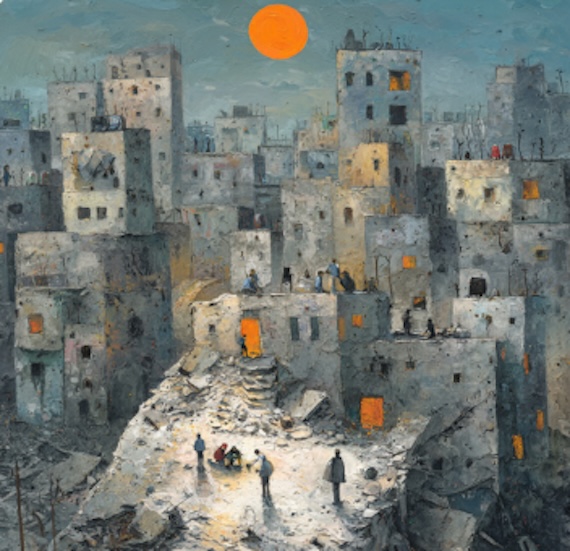Similarly, at present, Israel’s strategy is not accidental; it was announced. In August 2024, Israeli Finance Minister Bezalel Smotrich asserted that it might be moral and just to starve the two million population of Gaza to retrieve hostages, but no one in the world would let that happen. A year later, not only was starvation allowed, but it happened before the eyes of the world, wide open.
This engineered starvation has only made the anarchic nature of the international system clearer. The UN itself is calling it a ‘man-made famine’, but is unable to put an end to Israeli aggression. The world is witnessing the horrors live on social media, and still, nothing changes. While the real-time, high-definition coverage of forced starvation in Gaza evokes a sense of empathy, it also instils a sense of helplessness. It only reminds the Palestinian people, and the entire world, that they can be erased gradually, on live TV, and continue to be at the mercy of a few global political elites.
READ: UNRWA chief: Israel has blocked food entry to Gaza for over 5 months
Traditionally, during imperialist rule and colonial subjugation, economic exploitation was the major tool used to marginalise a certain population and erase their political subjectivity. What we are witnessing in Gaza is a model of what Achille Mbembe refers to as ‘necropolitics’: the use of political power to control lives and create a ‘death world’ where a group of people is structurally marginalised and exposed to death.
It is also what Giorgio Agamben, an Italian philosopher, calls a ‘bare life’, that is a life stripped of political value, left to survive at the mercy of a sovereign power. By manufacturing starvation, Israel aims to do just the same: alter cognitive abilities, debilitate bodies, and wear out resistance, replacing political struggle with physiological survival.
What has allowed Israel to engineer mass starvation in Gaza is not just power, tanks, and vetoes but narratives. Just like Israel propagated its aggression as self-defence, it has framed starvation as a consequence and not a strategy. Across the globe, people are now beginning to see Palestinians more as people in need of aid and less as political actors fighting for their legitimate rights. The Israeli media presented the intentional blocking of aid as a necessary measure to contain Hamas, arguing, “We cannot fight them with one hand and give them aid with the other.”
While the world must keep striving to get as much aid as it can get in, there is also a need to ensure that we do not start viewing Gaza through the lens that Israel desires. The narrative must be countered and challenged. We must dismiss the passive language of humanitarianism and employ the political vocabulary that continues to highlight Palestinian autonomy and struggle. Gaza does not need to be fed; it needs to be freed. The starving children in Rafah and Jabalia are not collateral damage; they are frontline victims of a war going on for decades.

“Gaza 51,” Digital, Midjourney, 2025
The play of counternarrative works, evident from the images and videos on social media showing multiple food trucks waiting at Rafah crossing for access, Jordanian Air Force dropping food pallets, Egyptians sailing bottles filled with food into the sea, and the UAE and Pakistan sending aid trucks towards Gaza. All such actions hold significant symbolic value as they create international media optics, exposing Israeli obstruction and shifting pressure. Western actors are now beginning to uncover Israeli propaganda, evident from France’s decision to extend recognition to the Palestinian state at the UN General Assembly in September 2025, followed by the UK, Canada, and Australia’s plans to do the same, unless Israel meets certain conditions.
Together, it goes to show that engineered starvation in Gaza is not just a humanitarian crisis or a war crime; it is ontological violence. It seeks to starve a people out of meaning, out of statehood, and out of existence. The world must not remain silent but ensure to speak of Gaza, keeping in mind the bigger game at play. Starving Palestinians is part of Israel’s genocide, one spoonful at a time.
OPINION: The hunger war in Gaza against displaced Palestinians: Starvation as a weapon
The views expressed in this article belong to the author and do not necessarily reflect the editorial policy of Middle East Monitor or Informed Comment.
 Unless otherwise stated in the article above, this work by Middle East Monitor is licensed under a Creative Commons Attribution-NonCommercial-ShareAlike 4.0 International License.
Unless otherwise stated in the article above, this work by Middle East Monitor is licensed under a Creative Commons Attribution-NonCommercial-ShareAlike 4.0 International License.

 © 2026 All Rights Reserved
© 2026 All Rights Reserved